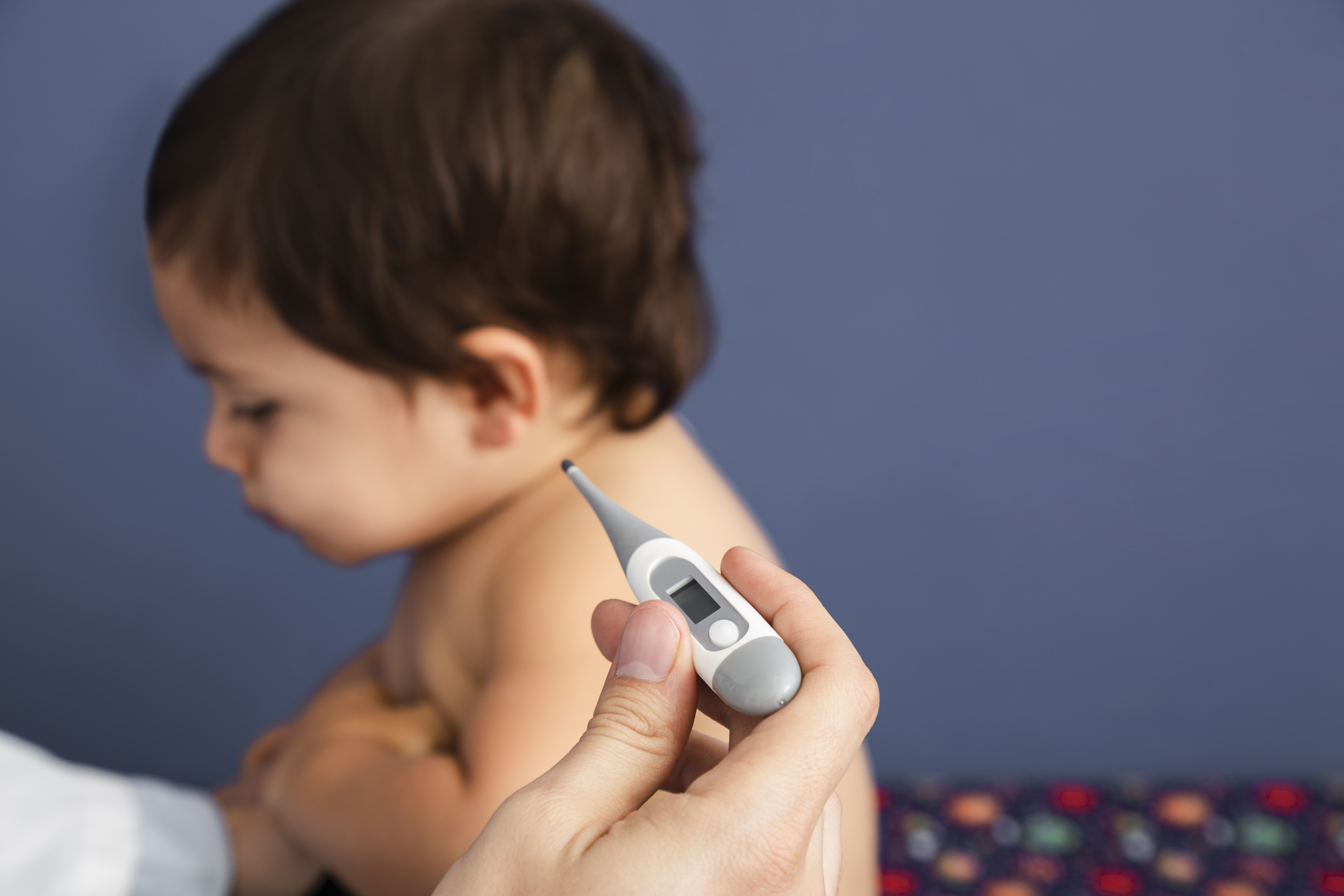Every Parent Faces This Moment
Your baby feels warm. You check the thermometer. It reads 38.3°C (101°F).
Is it dangerous? Should you rush to the hospital? Or wait and watch?
Here's the clear, medical truth — no guessing, no panic.
What Is a Fever in Babies?
Fever = Rectal temperature ≥ 38.0°C (100.4°F)
It's the body's natural response to infection.
When to Worry Based on Age
🍼 Age 0–3 Months
Call your doctor immediately if rectal temp is ≥ 38.0°C (100.4°F)
Fever in this age = possible serious infection (even without other symptoms)
👶 Age 3–6 Months
Monitor behavior, hydration, feeding
See a doctor if fever is ≥ 39.0°C (102.2°F) or baby is irritable, lethargic, or not feeding
👧 Age > 6 Months
Evaluate overall condition: active vs. limp, drinking fluids, responding to you
Watch for red flags below
Red Flags — Go to ER If You See:
- Difficulty breathing
- Baby is unresponsive or very drowsy
- Stiff neck
- Seizure
- Rash that doesn't fade with pressure
- Signs of dehydration (no tears, dry mouth, no wet diapers > 8 hours)
- Bulging fontanel (soft spot)
How to Take the Temperature Correctly
- ✅ Use a digital rectal thermometer for infants
- Avoid ear, forehead, or underarm thermometers in babies < 6 months — they're less accurate
Should You Give Medicine?
- Paracetamol (acetaminophen): okay over 2 months, check exact dosage with doctor
- Ibuprofen: okay only over 6 months
- Never give aspirin to children
- If fever is mild and baby is playful and feeding — no meds are needed
What Causes Fever in Babies?
Most common:
- Viral infections (cold, flu, COVID-19, RSV)
- Ear infections
- Teething does not cause high fever (> 38.0°C)
What to Do at Home
- Dress your baby lightly
- Keep room at 20–22°C (68–72°F)
- Offer breastmilk or formula frequently
- Sponge baths only if doctor recommends
- Keep track of behavior and feeding, not just the number on the thermometer
You don't need to panic every time your baby is warm. But you do need to know when to act fast. Stick to the facts. Avoid myths. Trust your pediatrician.
